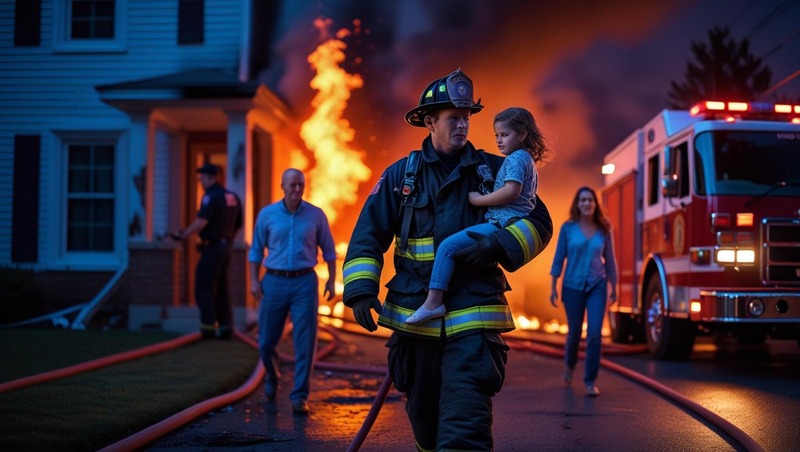
Twenty-one years ago this week, my life changed forever. I was in a deadly fire. I survived, but my neighbour didn’t. That night haunts me still ( I still wake up from dreams about that night and the fire fighters who rescued us), and it taught me some hard lessons about fire safety, tenant insurance, and how fragile everything can feel when you’re starting over with nothing.
I wasn’t financially prepared for the aftermath. Most renters aren’t. There is a better way to be prepared. I wanted to share this post so no one has to start from nothing.
1. Fires Happen Fast — and Often
Fires can spread in less than 60 seconds. According to Statistics Canada, over 70% of residential fires happen in homes, apartments, and condos. Many of these could have been prevented.
If you’re renting, here are some quick fire safety reminders:
- Check that you have working smoke alarms on every level and outside all bedrooms. Change the batteries every 6 months.
- Keep a small fire extinguisher in your kitchen.
- Avoid overloading outlets or using damaged cords.
- Never leave candles or space heaters unattended.
- Know your exit plan. Practice it with your family.
What saved me that night? A knock at the door. My fire alarm had no batteries. I was rescued by firefighters at the door.
2. Tenant Insurance Isn’t Just a “Nice-to-Have”
After the fire, I learned the hard way: my landlord’s insurance only covered the building, not my things. I lost clothing, furniture, electronics, and important documents, and I had to pay out of pocket to replace so many things. Many of my neighbours had to start from scratch.
For about $15–$25/month, tenant insurance can cover:
- Your belongings (even if they’re stolen outside your home)
- Temporary housing if your place is unlivable
- Liability protection if someone gets hurt in your apartment
In 2025, many providers like Sonnet, Square One, and Aviva will offer custom tenant insurance quotes online in minutes. It’s one of the smartest financial moves renters can make. The average cost is about $20 a month.
3. When Disaster Hits, Finances Can Spiral
I was earning minimum wage at the time, and without insurance, I had to:
- Rely on the Red Cross for temporary housing.
- Borrow money to replace and restore so many things.
- Delay paying bills, which hurt my credit score
- Rely on the help of others for my move.
That experience taught me why an emergency fund matters — even $500 can make a huge difference in a crisis. It also made me a believer in:
- Tracking every dollar
- Planning for the unexpected
- Being insured. I have lived through floods, fire, and hurricanes.
4. Lessons I Carry Forward
Today, I never live without tenant insurance. I keep a digital copy of important documents in the cloud. I check smoke alarms monthly. And I always ask myself: “If I lost everything tomorrow, would I be okay?”
I want you to be prepared.
Final Thoughts: Protect What You’ve Worked For
Fire safety. Tenant insurance. Emergency savings. They’re not the sexiest topics, but they’re real, life-changing protections.
If you’re a renter and haven’t looked at your coverage lately, make this your sign. Check your smoke alarms. Review your insurance. Start that $20 emergency fund. Do it for your future self — and for your peace of mind.
Because sometimes, it only takes one night to lose everything.

Leave a Reply